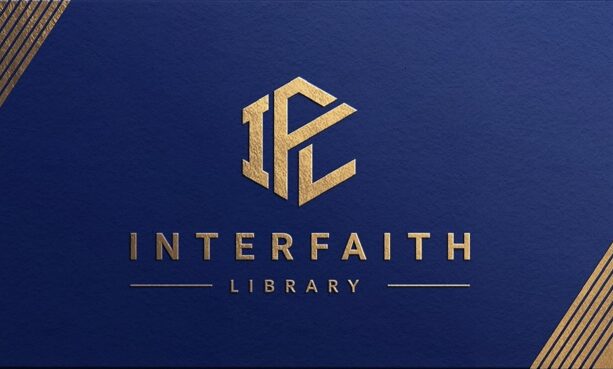What Is The Proper Beliefs In Islam?

by: Imam Hamza (Masjid Al-Falah Islamic Center)
Title: Reflecting on Surah 4:136 – Imam Hamza’s Insightful Khutbah (i.e. sermon)
As the faithful gathered in the tranquility of the little mosque in Rocky Mount, NC, the air resonated with the timeless words of the Qur’an, and hearts were stirred by the wisdom of Imam Hamza’s Khutbah on Surah 4:136. The Imam’s profound reflections on this verse illuminated the path of righteousness and stirred the souls of the congregation. In this post, we delve into the transformative message of Imam Hamza’s sermon, exploring the significance of Surah 4:136 and the timeless guidance it offers to all who seek a deeper connection with their faith. Join us as we unravel the layers of wisdom encapsulated in this sacred verse, and discover the profound impact of Imam Hamza’s inspired explanation.
What Does Surah 4:136 say and mean?
Surah 4:136 of the Qur’an states: “Oh you who have believed, believe in Allah and His Messenger and the Book that He sent down upon His Messenger and the Scripture which He sent down before. And whoever disbelieves in Allah, His angels, His books, His messengers, and the Last Day has certainly gone far astray.“
This verse is addressing the believers, reminding them to maintain and strengthen their faith in Allah, His Messenger (Prophet Muhammad (PBUH)), and the divine scriptures that have been revealed. It emphasizes the importance of believing not only in the Qur’an, which was revealed to Prophet Muhammad (PBUH), but also in the previous scriptures that were sent down to earlier prophets, such as the Torah, the Psalms, and the Gospel. To be forthwith, the Qur’an was stressing Interfaith Cooperation over 1400 years ago, (when you think about it with an open mindset).
For believers, this verse serves as a reminder to uphold their faith in the fundamental tenets of Islam, including belief in Allah, the angels, the books revealed by Him, the prophets and messengers, and the Day of Judgment. It underscores the importance of maintaining a strong and unwavering faith in the core beliefs of Islam, which serves as a guiding principle for all lives and all actions.
How Important Is This Verse To Muslims?
The 7th Islamic Kalimah, known as “Iman Mufassil,” is established from this verse. This testament of faith is a declaration of faith that is recited by Muslims to affirm their belief in the essential “Articles of Faith” within Islam. The Kalimah is as follows:
“Aamantu Billaahi kamaa huwa, bi asmaa-ih, wa sifaatihi wa qabiltu jamii’a ahkaamihi.”
This declaration is simply translated to mean:
“I believe in Allah as He is with His names and attributes, and I accept all His rulings.”
In this testament of faith, Muslims affirm their belief in the oneness of Allah and His attributes as they are described in the Quran and the teachings of the Prophet Muhammad (PBUH). It represents a reaffirmation of the fundamental beliefs that form the core of Islamic theology which was originally expressed in the Qur’an.
The declaration highlights the importance of accepting and embracing all of Allah’s attributes and decrees, demonstrating complete submission to His will. It serves as a reminder of the central role of faith in Islam and the need for believers to uphold their commitment to Allah and His teachings.
The recitation of the 7th Kalimah is a form of worship and a means of strengthening one’s faith. It is often recited during personal acts of devotion, such as prayer and supplication, as well as during important religious ceremonies and gatherings.
Jazakallah bi-khairin, Imam Hamza, for this insightful reminder. We are truly grateful for your wisdom and guidance. May Allah bless you with countless blessings and may He be pleased with you, granting you the highest level of Jannah. Ameen

This is an awesome article. Well written and expressed…Very descriptive, concise and straight to the point.
I read Surah 4:136 and I respectfully disagree with it. I also read tried to absorb your 7th Kalimah as well. And again, I respectfully am at odds with it. RESPECTFULLY!!!
I am an atheist and I take issues with all religious philosophical doctrines. I do not believe in the existence of a god or gods, so the call to “believe in Allah” is in direct conflict with my worldview. Can you resolve this?
This verse mentions belief in angels, books revealed by a deity, and the Last Day (presumably a reference to the Day of Judgment). I reject belief in the supernatural and thus take issue with these concepts.
The verse implies that those who do not believe in the specific aspects mentioned have gone astray. I find this exclusivity problematic, as it dismisses my position and implies that I’m on the wrong path.
Saying all this, I find myself intrigued with this website. Why? I don’t really know. I find myself keep coming back.
Just know that me finding Interfaith Library interesting does not imply an endorsement of religious beliefs. Let just say that my fascination reflects a genuine curiosity, open-mindedness, and a desire to engage with diverse perspectives. I love the inclusive approach that seeks to promote dialogue, understanding, and cooperation among people of different faiths and worldviews. Emphasis on world views. Please respect my interest as nothing more than me broadening my intellect and not as an oxymoron or false syllogism. Thx for allowing me this time.
Is it okay if we add you on Google+?